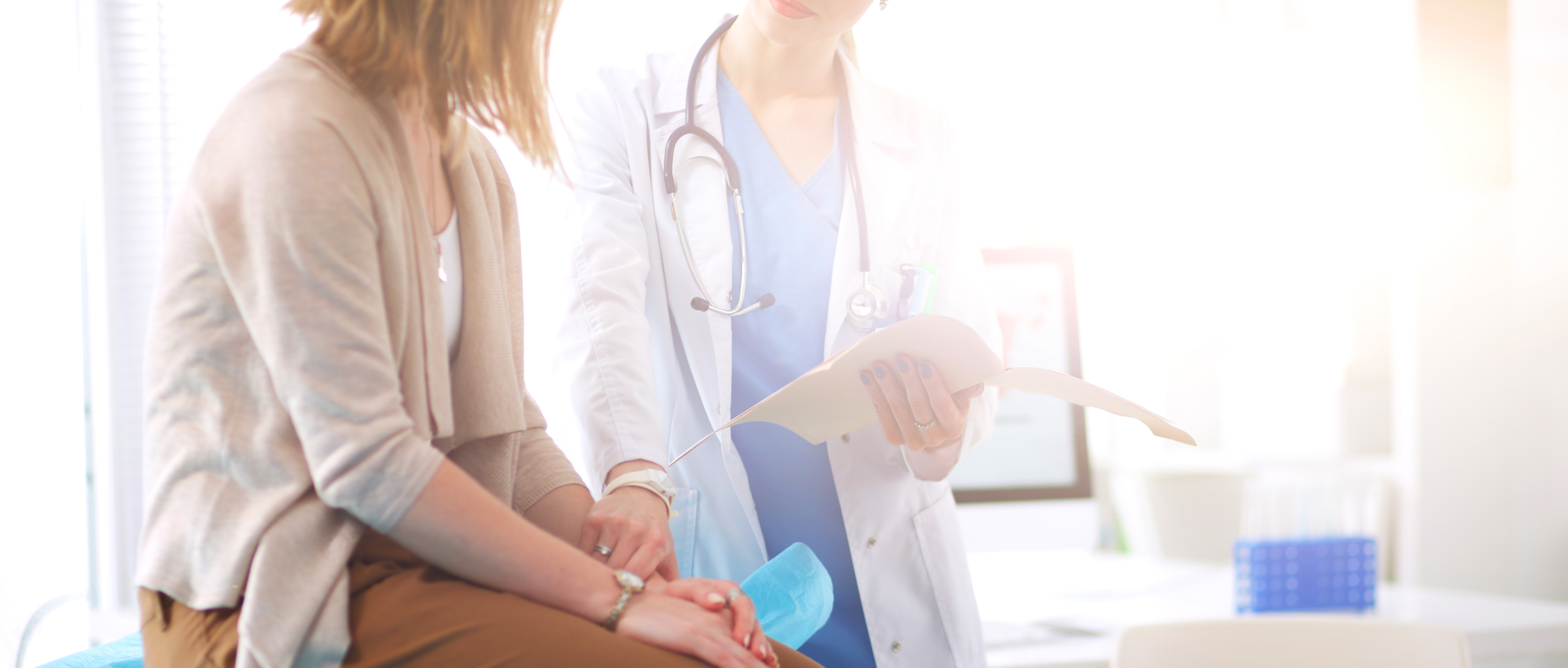WHAT ARE THE SYMPTOMS?
Most fibroids do not cause symptoms as only 10 to 20 percent of women who have fibroids require treatment
Common symptoms include:
- Heavy, prolonged menstrual periods
- Intermittent unusual monthly bleeding
- Pelvic pain and pressure
- Fatigue due to anemia
- Pain in the back and legs
- Pain during sexual intercourse
- Bladder pressure leading to a frequent urge to urinate
- Pressure on the bowel, leading to constipation and bloating
- Abnormally enlarged abdomen

Abnormal Menstrual Bleeding
Many women do not know that their bleeding is not normal or heavy. Heavy, prolonged menstrual bleeding is one of the most common symptoms of uterine fibroids, in particular with fibroids located close to the endometrial cavity. Menstrual bleeding for 7 days or longer, needing to change tampon/pad more frequently than every 2 hours or passing large clots are abnormal. Abnormal menstrual cycles can also be irregular, sometimes with delayed periods or spotting between menses. This can also be associated with painful periods and heavy menstrual cramping.
Abnormal menstrual bleeding can interfere with everyday activities and lifestyle. Abnormal bleeding that is prolonged can have serious side effects over time such as leading to fatigue and anemia, which is low red blood cell count.
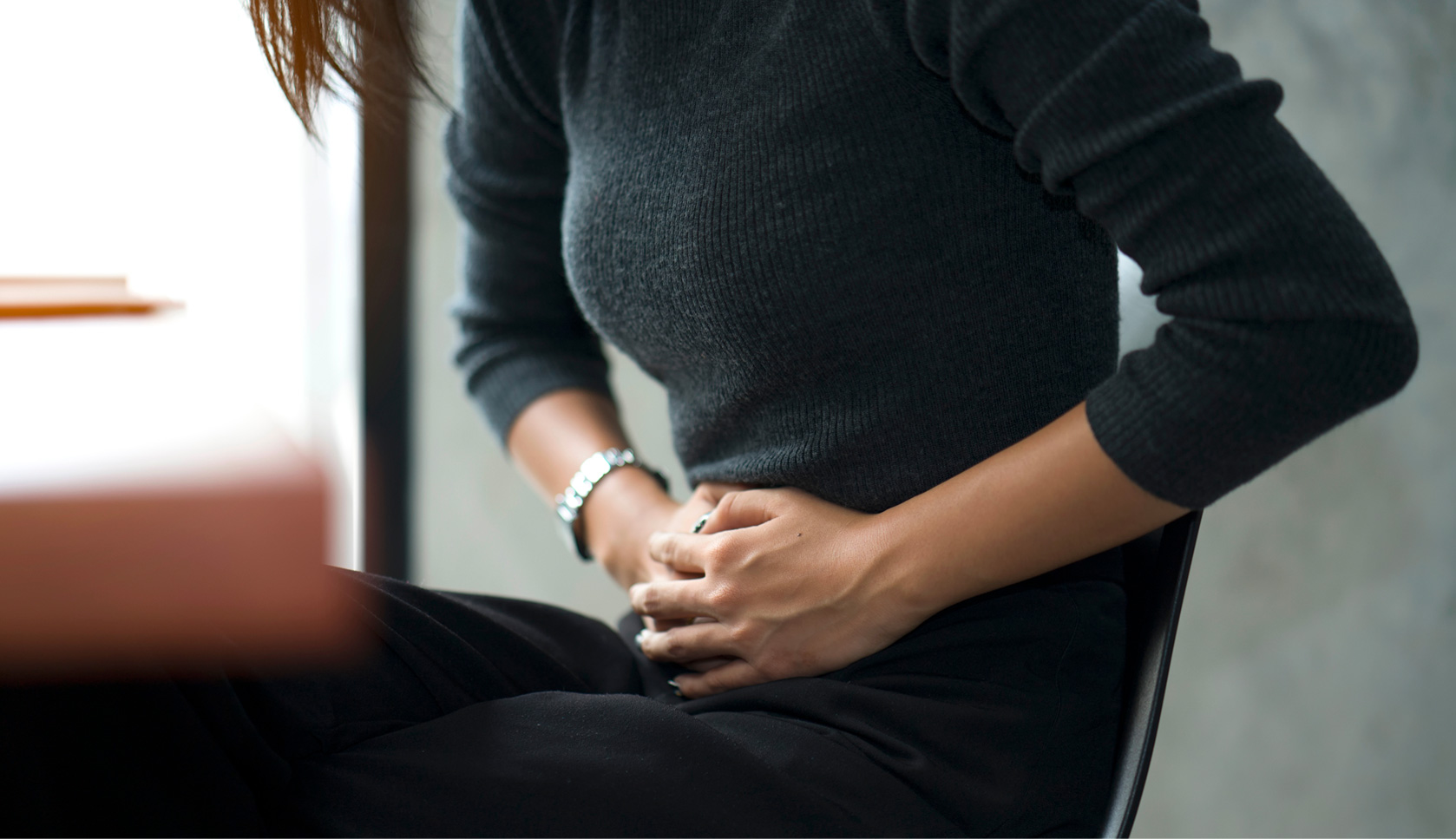
Pelvic Distension and Pain
As uterine fibroids grow they can put pressure on surrounding organs and cause pain. The enlarging fibroids can also cause pelvic fullness and distension, which sometimes can be mistaken for weight gain or even pregnancy. Uterine fibroids vary widely in size from as small as a coin to the size of a large melon. A very large uterine fibroid can cause the uterus to expand to the size of a 6 or 7 month pregnancy. Fibroids can form as one single dominant fibroid or as a cluster of many small fibroids.
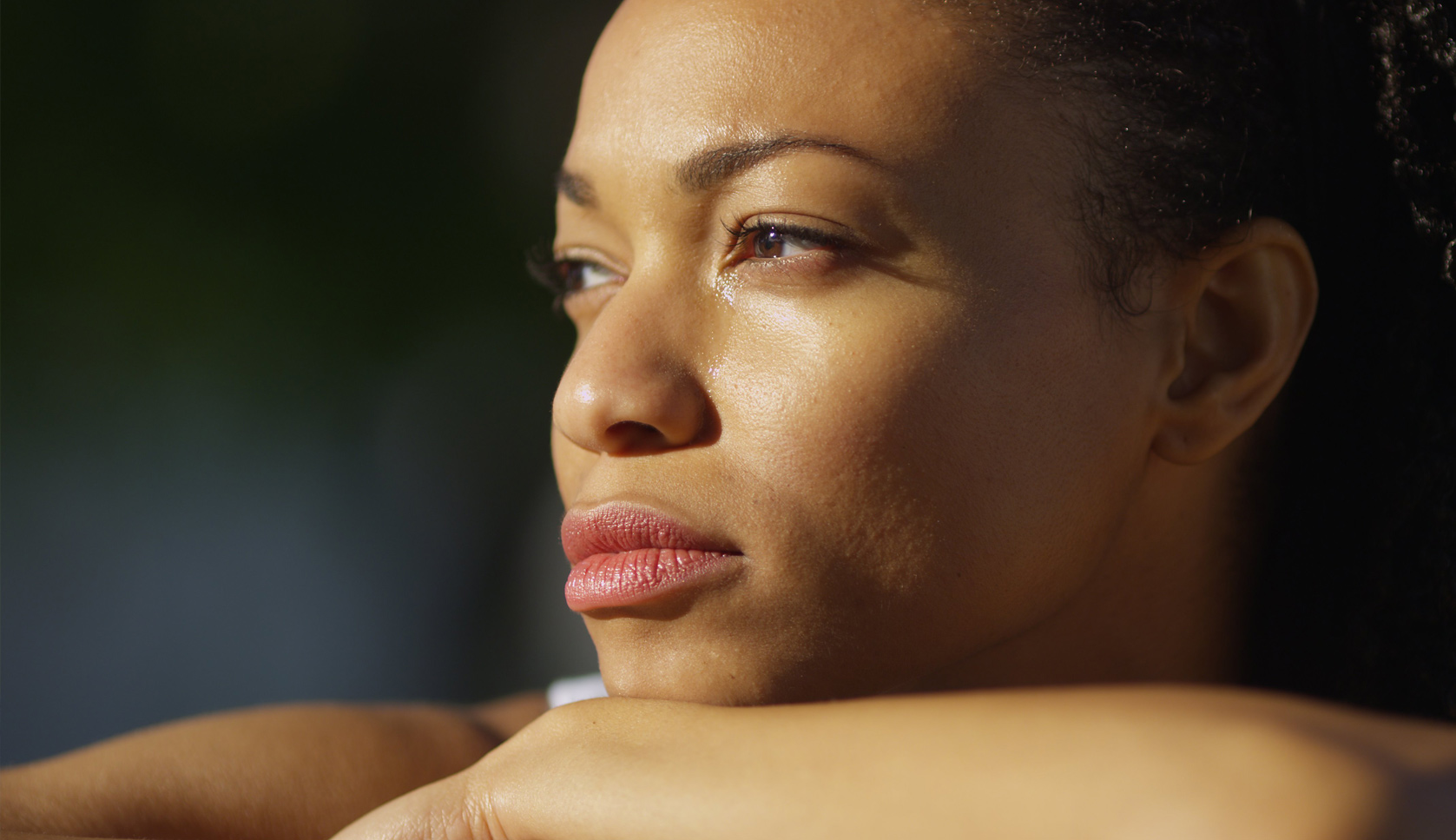
Anemia
Heavy and prolonged menstrual bleeding from fibroids can cause anemia. Patients who have been bleeding heavily for a long time, may not realize that this is abnormal. Anemia can lead to serious health problems and potentially require blood transfusions.
Common Symptoms of Anemia
- Fatigue
- Weakness
- Pale skin
- A fast or irregular heartbeat
- Shortness of breath
- Chest pain
- Dizziness
- Cognitive problems
- Cold hands and feet
- Headaches
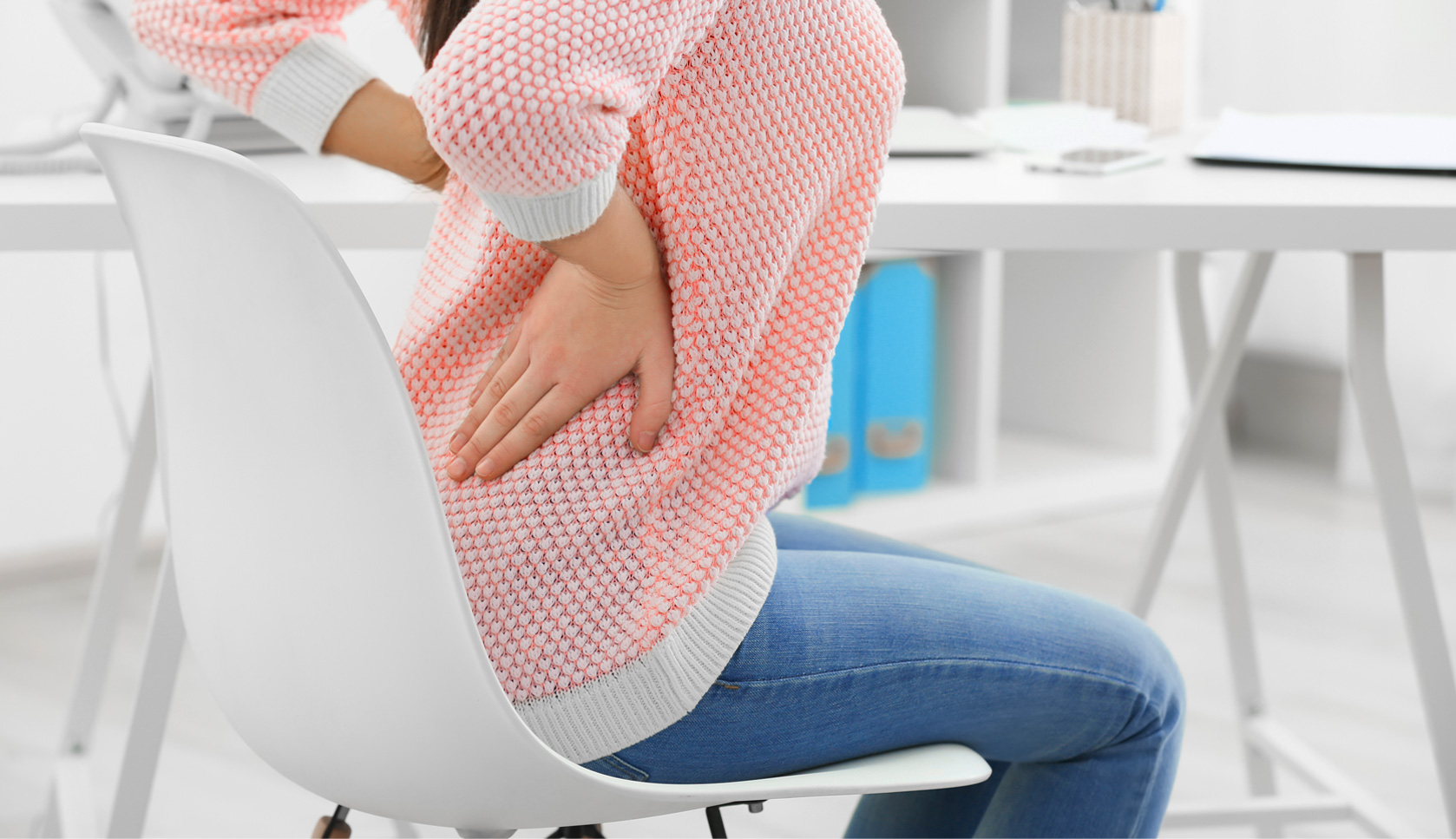
Back and Leg Pain
If a fibroid is located on the back of the uterus, it could press up against the spine or adjacent nerves causing lower back pain. It can also cause sciatica as the fibroid presses against the sciatic nerve and sends pain down the back of the legs.
Painful Intercourse
Uterine fibroids can affect a woman’s sex life by causing sex to be very painful. The technical term for painful sex is “dyspareunia.” Women whose fibroids are growing in the upper portion of the uterus are more likely to have dyspareunia. Fibroids don’t just impact women diagnosed with the condition; they can also impact their partners and relationships. Along with other fibroid symptoms such as heavy longer bleeding, constant fatigue, and pelvic distension, these symptoms may leave women feeling less self- confident or less interested in intimacy.
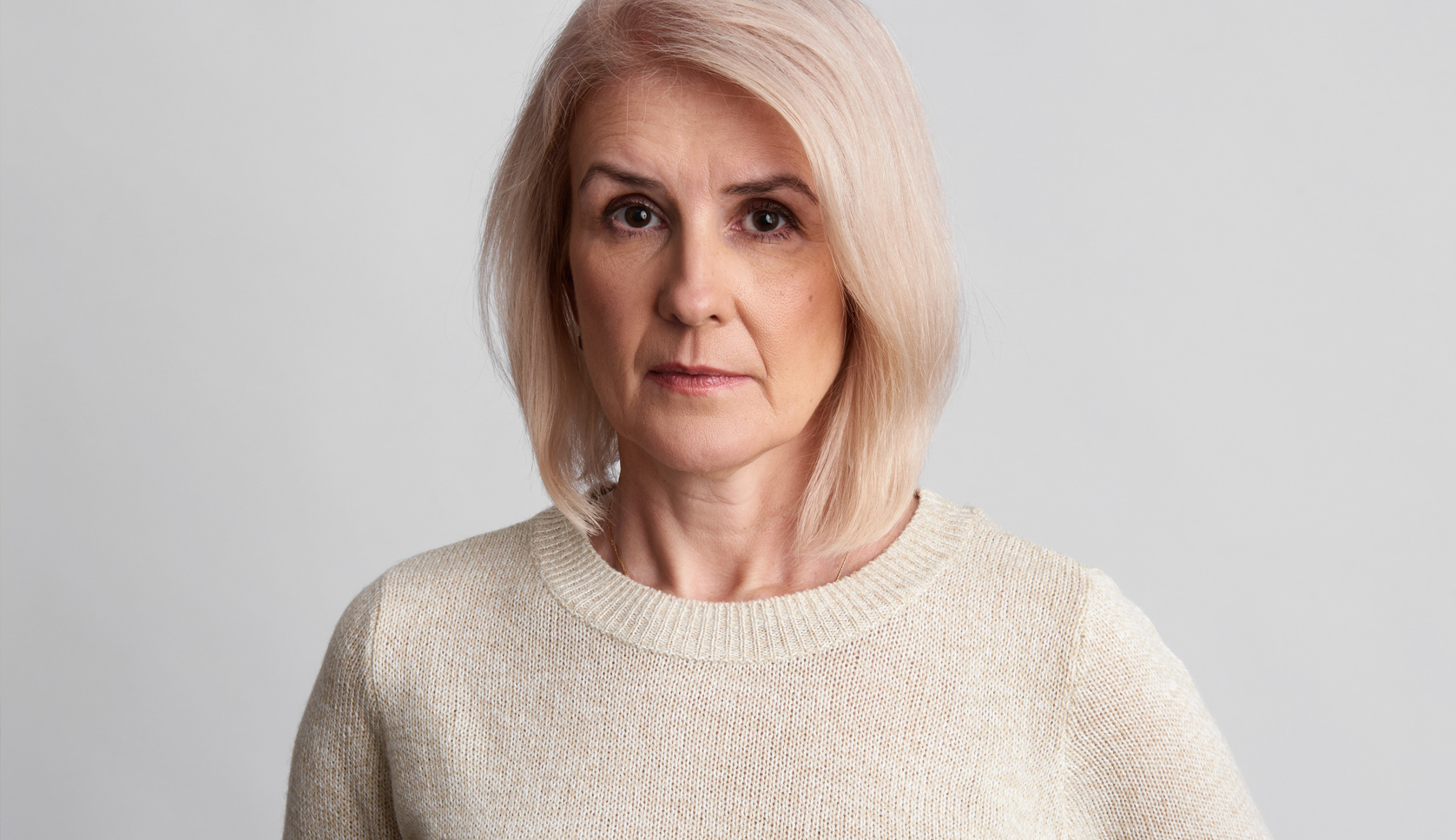
Bladder Pressure and Urinary Frequency
The bladder is one of the most common organs directly affected by growing uterine fibroids. The uterus typically sits on top of the bladder. Fibroids are heavy and can act like a paperweight upon the bladder not allowing it to expand as normal and causing the urge to urinate. This pressure upon the bladder can cause urinary incontinence or frequent urination, even if the bladder is holding little urine. Not only can this cause a discomfort, but it can also become a hindrance in everyday activities.
Fibroids and Your Bowel
Uterine fibroids cause constipation and bloating directly or indirectly. The uterus lies directly in front of the distal part of the colon. Larger fibroids can put pressure on the colon from the outside and potentially cause constipation. Indirectly, women who are anemic from heavy menstrual bleeding may become constipated from iron supplements.


